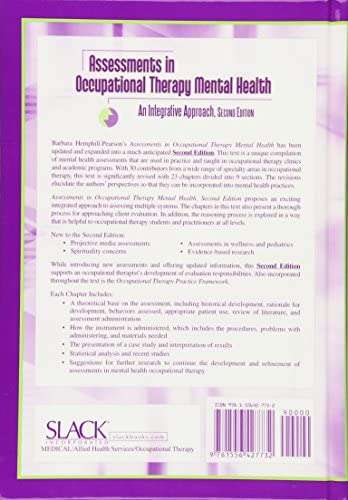To become a Clinical Psychologist in Malaysia you need to:
- Obtain a Bachelor’s degree in Psychology.
- Gain some work experience.
Some courses in Malaysia are now accepting students without work experience.
- Obtain a Master’s degree in Clinical Psychology.
Until recently there were only two clinical psychology training courses based in Malaysia: HELP & UKM. There was a lot of competition to get a place on one of these courses. Several new clinical psychology courses have just started operating across Malaysia. This makes it easier to find a place on a Clinical Psychology course but it could cause an issue for trainees because it there may be too few placements.
Some Clinical Psychologists in Malaysia have trained overseas. If you study overseas you may need to study a doctorate rather than a Masters degree. For more information about studying overseas please read my page on ‘How to become a Clinical Psychologist’. You will also find information about some of the courses available to international students on this website. The biggest challenge with training overseas is paying the high tuition fees. This means most Malaysians train in local universities.
What happens on the Clinical Psychology Training Programme?
The Masters in Clinical Psychology in Malaysia is usually a 2 year full-time course. Most courses start in January. There are three main components to the training:
Academic Learning
You will attend lectures and workshops to teach you the knowledge and skills you need to practice as a clinical psychologist. This is is likely to include training on interventions such as Cognitive Behavioural Therapy (CBT) and assessment methods such as neuropsychological assessments.
Placements:
Trainee Clinical Psychologists need to learn by working under the supervision of an experienced clinical psychologist. There are a limited number of clinical psychologists in Malaysia and only a small proportion of them are able to offer placements for trainee clinical psychologists. Some of the newer courses have found it difficult to find psychologists who can offer supervision to trainees. You should check how the placements will be arranged to ensure the university is able to provide suitable practical learning opportunities.
Research Project
You will be required to complete a research thesis to demonstrate your understanding of the scientific method and approach that is central to the practice of a clinical psychologist.
Do I need to be registered to become a Clinical Psychologist in Malaysia?
A new law, the Allied Health Professions Act, 2016 made it illegal for someone to call themselves a ‘Clinical Psychologist’ unless they are registered. The law has not yet been enforced because the government needs time to decide how to run the register. It’s a difficult task because the register needs to cover many different professions. The list of professions ranges from Speech and Language Therapists to Nutritionists. We don’t know when the register will be ready.
Who accredits psychologists in Malaysia?
Although the register is not ready, employers and clients need to know that you are fully qualified. The Malaysian Society of Clinical Psychology (MSCP) is a professional society that accredits Clinical Psychology courses and Clinical Psychologists. Becoming a full member of the MSCP helps show that you are fully qualified. You can find out more about them on their website www.mscp.my or Facebook page.
Can I train to be a Clinical Psychologist in Malaysia if I am not Malaysian?
You should check with the authorities or potential employers in your home country to find out whether a Malaysian qualification will be recognised.
Which Universities currently offer places for students to study clinical psychology?
Until recently there were only two clinical psychology training courses based in Malaysia: HELP & UKM. Several new clinical psychology courses have just started operating across Malaysia. This makes it easier to find a place on a Clinical Psychology course but it could cause an issue for trainees because it there may be too few placements or too few experienced clinical psychologists to do the teaching.
To view Clinical Psychology Courses in Malaysia click here.
Job opportunities once you qualify
We’re often asked about the job prospects for clinical psychologists once they qualify. I’ve written an article on ‘the Status of Clinical Psychology in Malaysia‘ which I hope gives something of an answer to a complex question!
How can I get a taste of what it’s like to be a Clinical Psychologist?
What does a psychologist do when they meet with clients? What happens during therapy? If you would like to find out for yourself then you could join our ‘Manage Emotions Live Life Program.
Our program is based on Acceptance & Commitment Therapy which is a well regarded evidence-based approach that many psychologists use (our director Dr. Dan Seal uses it as his primary approach). It is regarded as a ‘third-wave therapeutic approach’. Cognitive Behavioural Therapy (CBT) is thought of as a ‘second wave therapeutic approach’ whereas Behaviourism is an example of a ‘first wave approach’.
Acceptance & Commitment Therapy, and therefore our program, is transdiagnostic. This means that it can be helpful for everyone. You can benefit from it whether you are finding it difficult to manage emotions such as sadness or anxiety or if you’re finding it difficult to stop behaviours such as overeating or overusing social media. It’s also useful if you don’t have any particular problems but you want to learn how to make life even more fulfilling.
If you join the program you’ll meet our facilitators one-on-one so we can tailor the program to your needs. Our facilitators are either recently qualified clinical psychologists or clinical psychologists who are about to finish their training and qualify as clinical psychologists. This means that, in addition to teaching you skills based on ACT, they can also answer any questions you may have about training as a clinical psychologist.
The full program consists of six meetings and costs RM150 per meeting. You can meet our facilitators in-person at Colony KLCC or the Hub SS2 in PJ or online via Zoom. There’s no obligation to complete the program if you don’t like it and you don’t have to pay for meetings you don’t use. However, we hope you will complete the program because in the later weeks we teach mindfulness (which we call Attention Training on our program) and we introduce the concepts behind Compassion Focussed Therapy (CFT) which is another third-wave evidence based therapy.
If you would like to join the Manage Emotions Live Life Program please contact Vivian who will schedule a time for you to meet one of our psychologists.
Have you always been fascinated by psychology theories and how they impact human behaviour? Perhaps helping people as a career has always been something you’re interested in. If so, you’ve probably thought about being a psychologist.
It’s important to know that completing a psychology degree does not immediately make you a psychologist. In fact, you will need further training and pursue a postgraduate qualification. Furthermore, the process can be different for different psychology specialisations.
So how can you get to the finish line and carry the title? Here’s a guide on how you can qualify as a psychologist in Malaysia from SPM.
Psychologist as a profession in Malaysia
Before we go through the pathway on how you can become a psychologist, it’s crucial to first understand the landscape of the psychology profession in Malaysia.
In most countries (e.g. Australia, UK, USA, Singapore) where psychology is a well-established profession, the term “psychologist” is regulated by law. This means that you cannot call yourself a psychologist without having proper qualifications and a practising licence.
In Malaysia, however, the term “psychologist” is not yet regulated, which means anyone with some training in psychology could call themselves a psychologist. Nonetheless, most will only use the term after completing a master’s degree in a specific area of specialisation.
This is not the case for clinical psychology. The Allied Health Professions Act 2016 (AHPA) has made it illegal for anyone to call themselves a “registered clinical psychologist” unless they are registered and have a practising certificate from the Malaysian Allied Health Professions Council.
With this in mind, here are the steps on how you can be a psychologist in Malaysia.
Step #1. Meet the requirements at SPM level

To study a Degree in Psychology, you must first have at least a credit in Mathematics and Science and a pass in English at SPM level.
Alternatively, you can complete a Diploma in Psychology instead if you have a minimum of 3Cs and pass in Mathematics and Science.
Step #2. Complete a pre-university or foundation programme

Upon completing SPM with the minimum requirements, you’ll need to take a pre-university course (e.g. A Levels, STPM, etc.) or a foundation programme. Both Foundation in Arts and Foundation in Science are acceptable.
With this qualification together with your SPM, you can proceed to a Degree in Psychology.
Step #3. Complete a Degree in Psychology

A Degree in Psychology will provide you with a solid foundation of core psychological principles and expose you to a range of topics in basic and applied psychology. You’ll develop a strong background in science, understand basic research methods, learn how to apply ethical principles and hone your communication and critical thinking skills.
Most psychology degrees will take 3 years.
As a psychology degree graduate, you will be able to pursue a range of careers including human resource, marketing, public relations, advertising and sales.
However, if you want to be a psychologist, further training and study will be required.
Enrol for college with EduAdvisor
There’s no best college — only the one that’s best for you. Speak to our advisors.
Start now
Step #4. Complete a postgraduate degree in a specialised field

To be on your way as a psychologist, you’ll need to complete a master’s degree. This is where you’ll be able to specialise in a psychology field (e.g. clinical psychology, educational psychology, counselling psychology, sports psychology, industrial and organisational psychology, etc.) and graduate with advanced skill and knowledge expertise.
Most master’s degrees in Malaysia take 2 years to complete and generally consist of academic lessons, practicum/internship and a research project.
Important Note: Not all master’s degree entry requirements are the same. Master’s of Clinical Psychology, for instance, requires you to pass an interview on top of having excellent grades. This requirement is not necessary for other specialisations.
If you would like to start your own private practice to provide psychology services to clients or work in research and academia, a PhD in the field is recommended.
Step #5. Get registered

Once you have your postgraduate qualifications, the next step would be for you to register yourself with the relevant organisations (if available). This lets people know that you are fully qualified to practise as a psychologist.
For clinical psychologists, you will need to register with the Malaysian Allied Health Professions Council and have a practising certificate. Most clinical psychologists in Malaysia also register with the Malaysian Society of Clinical Psychology for additional credibility and endorsement.
For counsellors, you will need to register with the Lembaga Kaunselor Malaysia. This body regulates counsellors that provide counselling services at places such as schools, universities, community centres and corporations.
As for other psychology specialisations, there are no mandatory requirements for you to be registered and licenced yet.
We hope this has given you a little more insight into your pathway to being a psychologist after SPM. Although there will be challenges on the long and windy road, rest assured that these hurdles will equip you with the dedication, resilience and integrity that is required of a psychologist.
Want to be a psychologist? Here are 10 branches you need to know.
The EduAdvisor Psychology Virtual Fair is going live this 14 – 16 December 2022! Click here to register.
Speak to an advisor
We offer free advice, course recommendation and application service.
Name
*
Mobile
*
*
Field of Study
You allow us to pass on your information to product providers and accept our Privacy Policy. We abide by the Personal Data Protection Act (PDPA).
I would like to sign up for an account with EduAdvisor
Already have an account? Login
 Thank you for your enquiry
Thank you for your enquiry
Here’s what will happen next.
![]()
Step 1: Check your email
You’ll receive an email confirmation from us regarding your enquiry.
![]()
Step 2: Speak to an advisor
Our advisors will be in touch to give you all the information you need.
![]()
Step 3: Submit your application
Ready to apply? Great! Simply let your education advisor know and we’ll sort everything out for you.

Nina Fazil
A work in progress — has been for the past 24 years.




